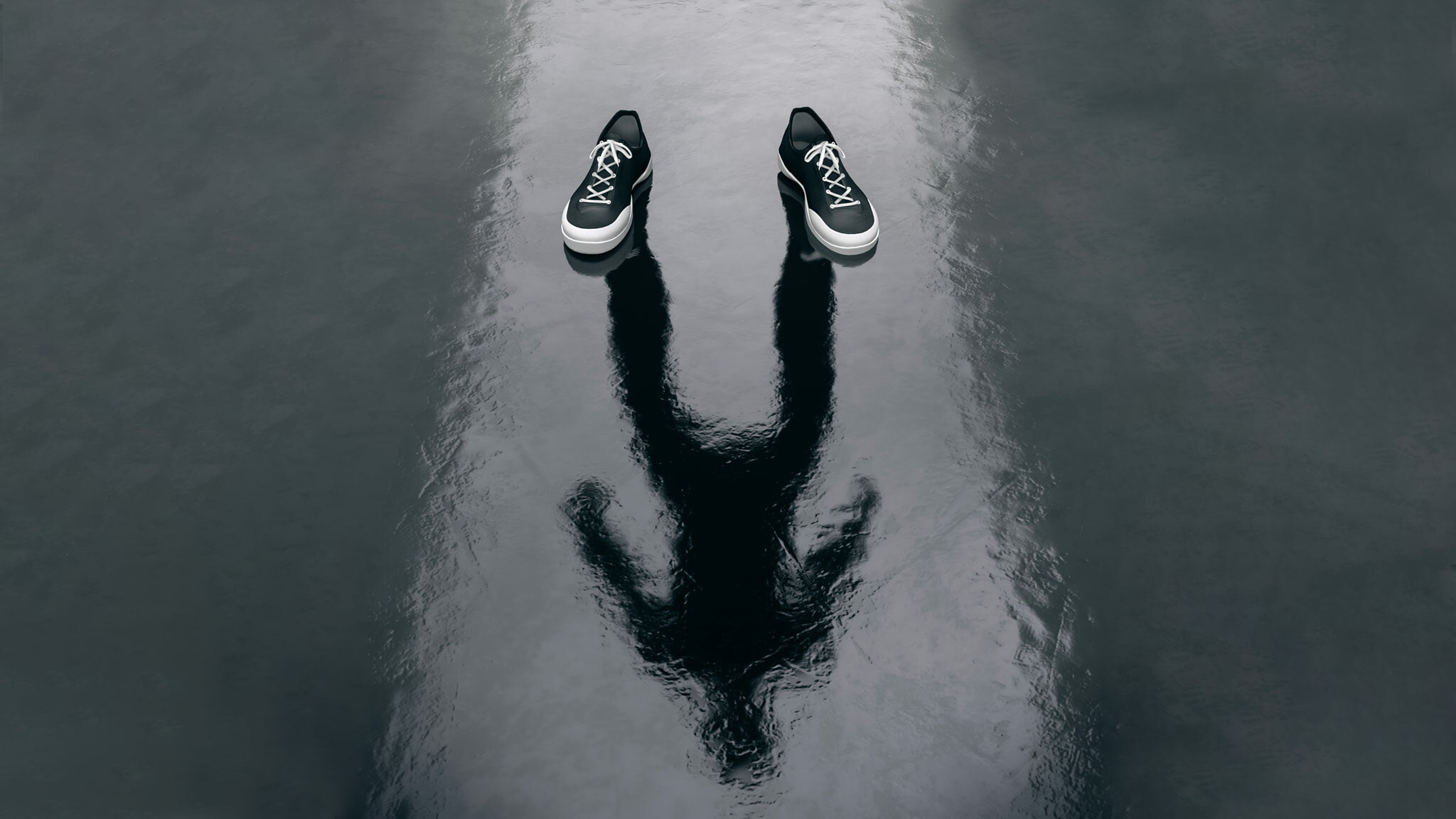How To Find Your Way When You’re Feeling Lost In Life

When I was five years old, a family friend asked me, “What do you want to be when you grow up?”
At the time, I answered with all the confidence in the world.
“A dog,” I said with a knowing smile.
At that moment, answering the question was exciting and I knew exactly where my life was headed.
I had it all planned out and somehow, I was entirely confident it would happen.
I’ll let you in on a little secret: It did not.
In fact, for many if not most of us, the way we pictured our adult lives as children bears little resemblance to our actual lives as adults.
And maybe it isn’t supposed to — but it’s very easy to feel lost in life when we’re unsure that the decisions we’ve made for ourselves were the right ones.
At the same time, our friends, family, coworkers, or even completely random strangers we meet in passing at Starbucks seem to have everything figured out.
They know what they’re doing and where they’re going, while we’re stumbling around the dark just trying to find the light switch — and that is a very lonely feeling.
If you’re feeling lost right now yourself, you probably know exactly what I’m talking about and it’s hard to discuss it with others if you feel like you’ll be judged for not being “adult enough” to have your life figured out.
You won’t find any judgment here — only commiseration, honesty, and hope.
In this article, I’ll cover:
Editor’s Note: This article is part of The Roots Of Loneliness Project, the first-of-its-kind resource that comprehensively explores the phenomenon of loneliness and over 100 types we might experience during our lives.
Why Do People Feel Lost In Life — And When Can It Happen?

One of the most famous lines from Mary Oliver’s poem “The Summer Day” poses the question:
Tell me, what is it you plan to do
with your one wild and precious life?
As a lover of words, poetry and literature have always spoken to me.
Mary Oliver’s poem is eloquent, hopeful, and honest, but she is asking a question we’ve all asked ourselves at some point —
“What the hell am I doing with my life?”
Not being able to answer that question easily can make us feel lost and lonely — at any stage in life.
When it seems like everyone else is “effortlessly” walking a steadfast path, we feel alone in our struggles because we’re not making our way through life with the same amount of conviction or confidence they have.
As I’ll talk about later on, one of the worst things you can do to yourself in this situation is to compare your life to that of others.
And if you’re feeling lost because your life lacks direction, it’s important to understand that you’re not alone.
Generally speaking, when we ask ourselves “Where should my life be going?” the feeling of being “lost” usually originates from one of four issues:
- Trying to answer the question outright (and not having one that feels adequate)
- Considering our response to life-altering experiences and the way they’ve shaped our lives
- Facing a conflict between your desires as an individual and as a parent
- Comparing yourself to others
As children, many of us are asked what we want to be when we grow up.
This question, though valuable, can put pressure on us to have our life’s direction figured out from a young age.
While this isn’t always a bad thing, what we wanted to do as children doesn’t always work out during adulthood — and that can be hard to accept.
Life often has other things planned for us.
As we age, change is an inevitable part of life, but major changes can cause us to question everything we “know” about ourselves, our lives, and where we’re headed.
Life-altering experiences that can cause a person to feel lost in life include:
- The death of a loved one
- Separation or divorce
- Going through a breakup or becoming single
- Becoming a single parent
- Graduating from high school
- Having an undecided major while attending college
- Graduating from college and trying (or failing) to enter the workforce in a chosen field
- Moving to a new city and being unsure of the decision
- Disability or unforeseen medical conditions, including cancer
- Raising children and lacking confidence in your parenting skills
- Leaving the workforce to become a stay-at-home parent
- Remaining a part of the workforce while raising children
- Watching children leave the nest as adults
- Being laid off from your current employment
- Shifts in your employment industry that necessitate finding work in an entirely different one
- Dealing with burnout or loneliness at work and seeking new employment (or a new career entirely) during midlife
- Retirement from the workforce
- Comparing yourself to others who seem to “have it all figured out”
Given the range of experiences above, a person can feel lost at almost any point in their lifetime.
No one is immune to it.
One life-altering experience that can turn your life upside down and make you question everything is the death of a loved one.
My grandpa — one of my biggest role models and a witty, hard-working, and quietly compassionate man — died in April 2019.
Amidst my grief, I wondered about life’s purpose and faced a period of existential loneliness following his death.
My experience isn’t uncommon.
For many of us, the death of someone we love makes us question our own lives and choices.
In my case, my grandpa’s passing made me consider what impact I wanted to have on the world.
Death, as painful as it is for those of us left behind, has a way of putting life into perspective.
However, that isn’t the only experience that makes people question the path their lives are on.
Divorce, though common, is another major life event that causes people to question themselves and what is most important to them.
After a divorce, you may not feel like the same person you used to be.
Going from married to single can cause others to view you differently — but it can also cause you to view yourself differently as well.
It may take time to come to terms with how your life has changed and figuring out who you want to be now isn’t easy.
Parenthood is another major life change that can shake your sense of direction to its core.
Many moms I’ve spoken to shared feelings of guilt or uncertainty while exploring their options, whether those involved working outside of the home or becoming stay-at-home parents.
Every one of them agreed that being a parent was a big part of their life’s purpose, but they also expressed their desire to find purpose in life beyond their roles as mothers.
Though the number of stay-at-home dads is increasing, moms are still more likely to be the stay-at-home parent, which can lead them to feel overwhelmed as they navigate life inside and outside the home.
Beyond these things, it’s human nature to compare ourselves to others and that can be a huge source of loneliness if you’re feeling lost and unsure of the way you’re living your life.
Social media is a major factor in this struggle.
Our online lives often act as highlight reels featuring our best experiences.
We share announcements about new jobs or happy photographs taken with our friends and from afar, our lives can almost look like fairytales.
As much fun as social media can be, it can also lead us to compare ourselves to other people — so much so that it can be hard to even know how to be ourselves.
When you’re only seeing the best of others’ lives as you’re scrolling through Facebook, especially when you feel uncertain about your life’s direction, it’s easy to feel inadequate.
Even people who know what to do with their lives and enjoy what they’re doing can find themselves feeling as if they’re not “good enough” after being on social media.
Loneliness and anxiety seem to be common responses to viewing others’ lives on social media, especially when we feel lost in our own.
Studies also show that those who use social media long-term are more likely to experience feelings of low self-esteem than those who use social media less frequently.
It can be easy to get wrapped up in what others are doing — or what you used to do if you’re no longer able.
This makes your focus shift toward what you’re doing “wrong” instead of the decision you can make to spark a positive change in your life.
When you log in to any social media platform, it’s important to remind yourself that you’re only seeing what others want to show you.
When you compare your hard days to someone’s best days, you’ll never win the comparison game — nor will you feel a sense of direction in your life.
How To Find Direction When You’re Feeling Lost

No matter the reason, it’s easy to feel lost in life and honestly, I’d be surprised if it isn’t something that every person faces at least once in their lifetime.
You’re not alone in your struggle, even if you feel like you are.
Here are 7 ways to find a sense of direction when you’re feeling lost and lonely in life:
- Spend time with yourself and listen
- Remember that you are the captain of your ship
- Give yourself the grace to find your purpose
- Don’t give up on finding fulfillment
- Seek purpose even in the small things
- Don’t compare yourself to others
- Remember that you’re not alone
1. Spend Time With Yourself — And Really Listen
When we’re feeling lost and lonely, sometimes the best thing we can do is spend some time alone with ourselves in solitude and consider our inner desires.
This is especially important if your day-to-day life is filled with constant noise and multitasking.
It’s easy to get so caught up in the grind that you feel like you’re little more than a hamster running in a wheel that never stops.
So break away from distractions and embrace solitude for a little while.
Sometimes your inner voice can only be heard when the rest of the world is finally quiet.
In solitude, you’ll be able to consider your thoughts and emotions, explore ideas about what comes next in your life, and weigh your options if there are decisions to be made.
2. Remember That You Are The Captain Of Your Own Ship
I mentioned earlier that daily life has a way of making us feel like we’re hamsters caught in a wheel, endlessly running to get…nowhere.
What the hamster probably doesn’t realize is that the wheel can be brought to a halt or change direction — if it stops running for a moment.
Life throws us unexpected curveballs on a whim and while they can make us feel like our destinies are not in our control — and maybe they never were, to begin with — we are still the captains of our own ships.
We make the decisions. And yes, we’re smart enough to do so — even if we don’t feel like we are.
You are free to decide where your life goes from here.
Whether it involves a change in employment or living situation, going back to college for continuing education, or doing anything that will bring a renewed sense of direction to your life, the decision is yours.
3. Give Yourself The Grace To Find Your Purpose And Make A Plan
Giving ourselves the grace to create a new purpose, or even multiple ones, can make our lives richer.
MiCole Chanele was a personal stylist before she began her career as a life and success coach.
From a young age, she had always dreamed of being a personal stylist, so in her early thirties, she became an entrepreneur and started her own business in that field.
“After a few years [of working as a stylist], I was surprised to realize it wasn’t actually something I wanted to do long-term,” MiCole told me.
“While I was grateful to have clarity, I remember at times feeling like I was mourning the loss of what I thought was my end-all-be-all dream,” she recalls.
Realizing that a life-long dream isn’t as fulfilling as you thought it would be can throw you off balance and make you question the direction your life is heading.
MiCole found herself recreating a purpose in midlife.
To do this, she had to be open to trying new things and figuring out what past lessons could be taken with her into a new career.
“What led me to discover my purpose was drawing from my own life
experiences, but also following my curiosity and what naturally interested me, which from an early age was personal development and business,” MiCole said.
“I realized that my purpose was to help people to live more courageous and meaningful lives by transforming fear and following their dreams.”
If you’re in a similar situation, it may be time to sit down with yourself and consider a new vision and purpose for your life.
That’s easier said than done in certain circumstances, I know — we’ve all got bills to pay and we can’t all work in leadership roles — but giving serious thought to the things you’d change about your life can pave the way for plans.
Write them down on paper or create a vision board if that’s easier.
When you’re done, figure out the steps involved for each part of your plan and commit to working toward them — if not in one sweeping change, then little by little.
Working toward a larger goal is a good way to build a sense of direction in your life and in this case, it will help you find a (new) purpose at the same time.
4. Don’t Give Up On Finding Fulfillment — At Least Not Permanently
The concept of seeking fulfillment over stability is relatively new.
According to an article published in The Journal of Management, previous generations often were far more concerned with having a stable job and a reliable income.
That was all you needed to “win” at the game of life.
Millennials are more likely to search for career paths that interest them versus focusing on money.
That said, our socioeconomic status can also affect stress levels related to fulfillment and purpose in life.
In some ways, having the opportunity to find fulfillment is a luxury — one that you can’t necessarily afford or prioritize when your goal is just to keep a roof over your head and food on the table.
Worrying about what you want to do with your life is, in some respects, a first-world problem.
When you’re living below the poverty line and you don’t have support from friends or family, thinking about what would make you feel fulfilled in life is a privilege that you may not have access to.
You might hate your job, but ultimately, you’re doing what you have to do to make ends meet.
In this case, fulfillment isn’t going to pay the bills — your job is.
Not everyone can afford to chase their dreams and that’s a reality that many (if not most) people face every single day.
Whether we like it or not, life sometimes has other plans for us — but it doesn’t mark the end of our dreams of fulfillment.
Donna F. Brown, a 70-year-old musician and author, played in the Chicago-based rock band, Medusa, as a young adult.
Though she loved being a musician, she was concerned about making a decent living and chose to go to school to become a nurse.
Over several decades, she changed careers, never feeling as fulfilled as she was as a musician. She told me:
“My life purpose chose me one day much later in my sixties in the form of a phone call.
Sitting at my desk doing boring nursing paperwork, the voice on the other end of the phone asked if I was still playing music.
The voice belonged to a producer of a well-known Chicago record label, Numero Group Records, and the producer said he found a 45 of our music at a record convention and he wanted to make and release an album of our music from the early ’70s!
Imagine my shock and disbelief that after 40 years, anyone would even be remotely interested in music from that era!”
After a phone call that came straight out of the blue like a gift from the universe, the band was reformed and Medusa went on tour — met with newfound fame.
Of course, not everyone will find that their life’s purpose chases them as serendipitously as Donna’s purpose chased her.
However, Donna’s story proves that you don’t always have to know what to do or do what you love to find happiness, and where you are in life isn’t necessarily permanent.
5. Seek Purpose — Even In The Smallest Things
Studies show that you’re more likely to thrive when you feel as if you have some sort of purpose in your life.
So what does that mean if you feel lost and don’t know what to do with the rest of your life? Are you doomed to be unhappy and alone forever?
No.
Focusing on small but meaningful parts of life can boost your levels of happiness.
Does your pet rely on you and love to see you when you walk in the door? That’s meaningful.
Did you volunteer some of your time today? Then maybe serving others was your purpose for today.
Noticing these small moments may not necessarily lead you toward figuring out your entire life, but having some sort of purpose is better than having none.
That said, it’s important to be aware of where your emotional energy is being spent if you’re unsure of what your future should look like or what your purpose might be.
Even if you’re not sure of your life’s direction right now, make sure you don’t focus all of your energy on things that make you unhappy — focus on what provides you with a sense of satisfaction and purpose, too.
6. Don’t Compare Yourself To Others
We all grow and evolve at our own speeds and no two lives are the same — even if two people make the exact same decisions in life.
We tend to think of developmental loneliness as something that strikes children, teens, or very young adults but the truth is that it can occur in later life stages, too.
We are always developing into something — no matter how old we are. The process of growth never really ends until we die.
Comparing your life to others’ success, whether that be their jobs, homes, family lives, or even material objects is a quick way to bring yourself down and feel even more lost in life.
After all, these types of comparisons can make you think, “If they can do it, why can’t I?”
Comparing yourself to others in this way will only lead to a sense of failure.
Likewise, it’s smart to avoid social media for that same reason.
Facebook and other social media platforms allow folks to put only the best and most carefully curated aspects of their lives on display.
And the vast majority of the time, those displays are heavily filtered versions of their real lives — they just look perfect and shiny from the outside looking in.
Trust me — they aren’t.
7. Remember That You’re Not Alone In Feeling This Way
It’s easy to feel lonely when we think we’re alone in our personal struggles.
As I talked about earlier, a person can feel lost in their life at any point during their lifetime — no one is really immune to that feeling at any age.
You are not the first person to feel this way and you certainly won’t be the last.
In fact, the people who you think have got it all figured out are likely feeling just as lost in their own lives — if not more.
That’s an important thing to remember, and it’s also why it can be helpful to talk about your struggles with your family or friends.
Even if they’re not currently facing the same situation, they’ve likely already lived through a similar one (at least once!) and can not only sympathize with what you’re going through but offer helpful advice, too.
Additionally, you might just find yourself in a position to help someone else through their own struggles later on.
That’s a gift waiting to be given to someone who needs it.
In Conclusion
It’s okay if you don’t have life all figured out just yet — that involves time, self-reflection, and patience, and for many of us, it isn’t something that happens overnight.
Especially if life has thrown some unexpected obstacles our way.
Although a lack of clarity can feel overwhelming at times, having the freedom to create a sense of purpose and fulfillment is part of what makes life worth living.
If you’re feeling lost in your own life right now, it’s important to remember that it isn’t permanent — you will find your way.
Life didn’t come with a roadmap or a user’s manual, but we’re more than capable of crafting our own to help ourselves — and others.
As humans, it’s what we do.
If a sense of desperation or loneliness is leading you toward suicidal thoughts, you can call the Suicide Prevention Lifeline any time, day or night, at 1-800-273-TALK (8255).
If you are Deaf or hard of hearing, you can call that same number using a TTY through your preferred relay service or by dialing 711 before the number, or connect via online chat.
There are additional resources available through the National Suicide Prevention Lifeline’s website.






